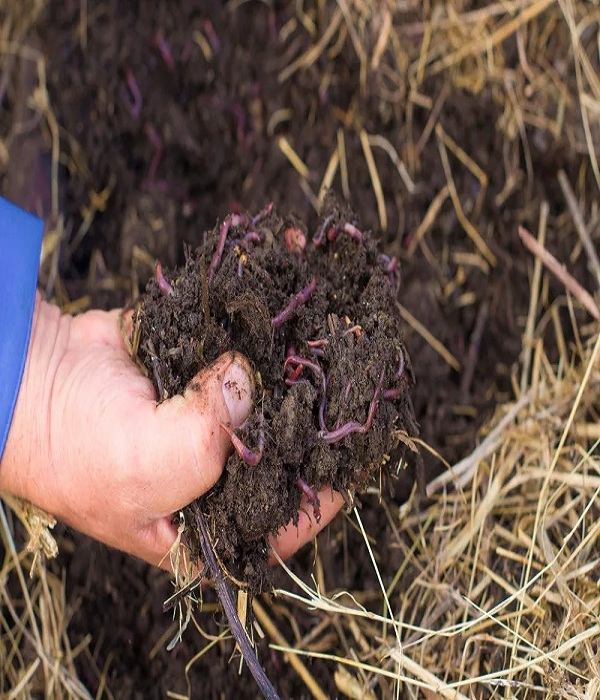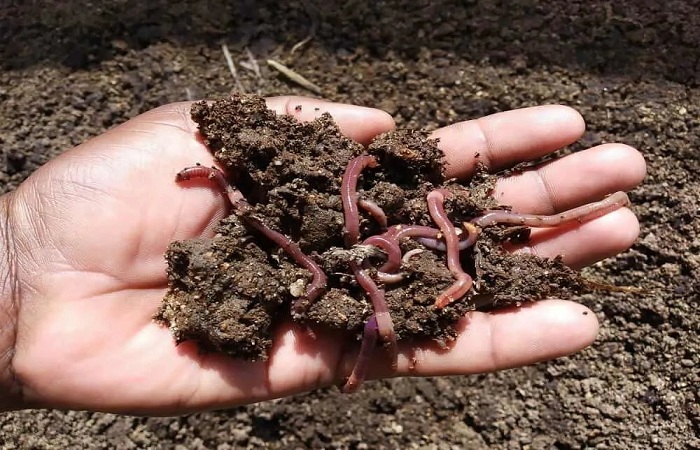Earthworms are vital to the health of your soil, which in turn influences the quality of your garden’s yields, yet not everyone appreciates their presence. They may grow on you with time, even if you don’t feel particularly fond of them right now.
Earthworms enhance soil quality overall
Earthworms collaborate with a plethora of fungi and bacteria in the soil to produce a great substrate worth cultivating in. Earthworms migrate through their digestive tracts as they move around in and near the soil’s surface, eating on plant debris (grass clippings, leaves, dead roots, manure, etc.).
You may have observed worm castings on your lawn, and these are a nutrient goldmine. In the end, this is transformed into fertilizer, which we’ll discuss shortly.
Soil enriched with earthworms is essential for healthy plant growth, and that’s all you need to know right now. Soon you will be thinking of methods to accommodate them, and you will become giddy every time you unearth one by accident.
Be very careful if you decide to dig in your garden, or better yet, don’t! That’s going to win you major kudos from the worm population.
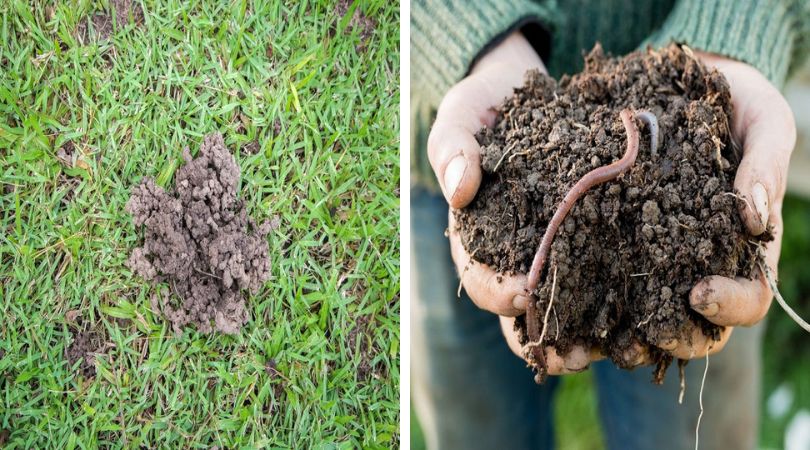
Earthworms improve soil drainage
When earthworms move through the soil, they create tunnels that allow air and water to reach the soil’s surface.
Soils with a high population of earthworms have been found to drain up to 10 times quicker than those with a low earthworm population. Where earthworms are present in no-till soils, water infiltration improves.
It should come as no surprise that fertilizers and nutrients can be transported deep into the soil via these subsurface passages and channels.
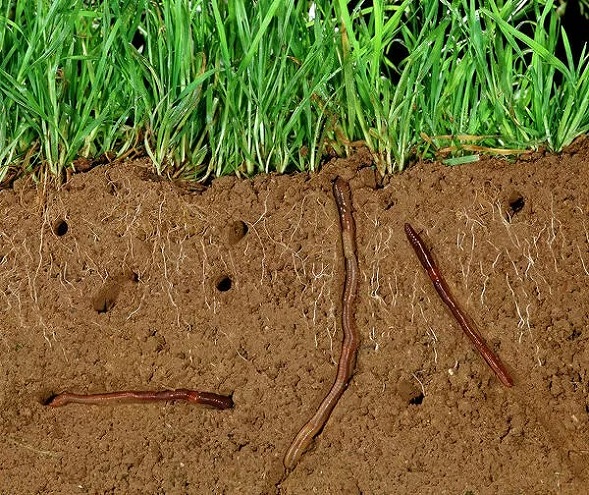
Earthworms fertilize your soil for free!
Worm excrement, or earthworm castings, is a vital nutrient for your garden.
Healthy soils are composed of these elements.
Set your squeamish instincts aside, and as an avid gardener and homesteader, put on a pair of gloves and prepare to apply worm castings to your garden. Because they are useful to any plant you put in your garden or flower bed. Worm castings can be used in a number of different gardening contexts, including in containers, on the soil, and even as a mulch around fruit trees.
Castings from worm farms don’t need to be aged like other manures do, whether they are from pigs, cows, horses, rabbits, or chickens. Dried worm castings can be used whenever you like.
Calcium, nitrogen, phosphorus, potassium, and magnesium are only some of the minerals found in worm castings. As so, you can already see how they can help your garden thrive.
What should you do if you don’t have enough worms…
Even if you don’t yet have enough worms for your garden, you can always buy worm castings online. Make sure they are completely casts.
Diluting worm castings with water creates an amazing organic liquid fertilizer.
The hunt for a natural, versatile fertilizer ends here; worm castings are the best option.
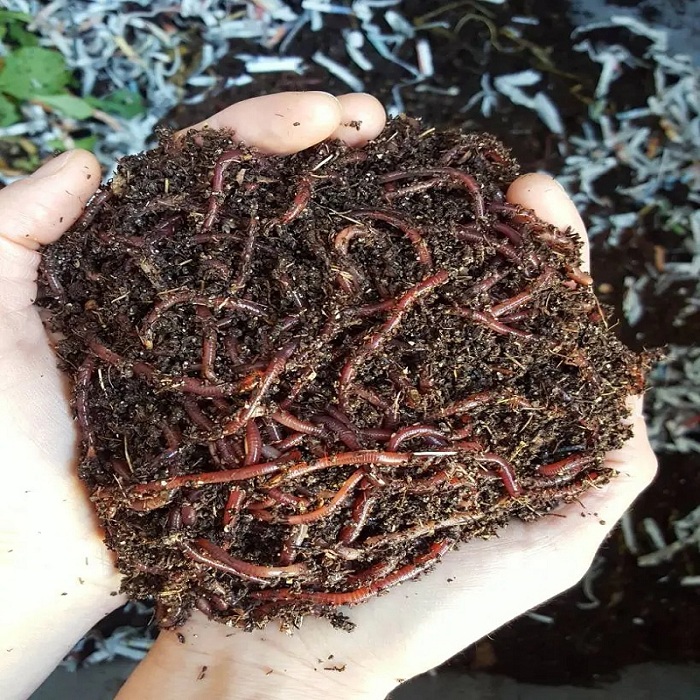
How to Attract Earthworms in Your Garden
It’s helpful to know if you actually need to go to the trouble of luring additional earthworms to your garden. How to proceed should be determined by that.
A simple test can determine whether or not your soil is worm-friendly.
Create a 6-8-inch-deep square of garden soil 12 inches on a side. Spread this out on a tarp or large plastic sheet and carefully open it up to see its contents. A healthy sample size of earthworms is 10 or more.
If you have less than that, you should probably think about how to attract more worms to your garden.
Although they have a high level of sensitivity, worms are not picky eaters. Here are some strategies to entice them to your soil.
- The soil should be left with a generous covering of organic material
- Mulch, mulch, and more mulch; it protects soil from heat and sun while also giving worms something to eat.
- Add matured compost
- Use groundcovers to maintain soil moisture.
- Cut back or stop tilling your garden
- Maintain a pH level in your soil over 4.5.
- Eliminate all chemical inputs and switch to an organic diet.
- For the sake of the earthworms and yourself, contaminated soil should be removed and replaced.
Assuming you’ve already done those things, buying and releasing worms into your garden soil is the quickest way to increase the number of worms there. Now more than ever, you can get anything you need, even worms for your garden, by shopping online.
A great way to introduce earthworms into your yard is with this listing for 2 pounds of European Nightcrawlers. On a dry day, they can be spread on the soil, and the worms will dig down to help aerate and fertilize the ground.
Don’t for a second think that you can trick the earthworms. Throwing some worms into some contaminated soil and hoping for the best is not going to work. It’s just as important to provide them with a sanitary environment in which to sleep, eat, and excrete their waste.
Once more, moisture is a problem. If it’s too dry, they’ll choke to death. If it’s too wet, they’ll likely drown. Being a worm certainly doesn’t come without its challenges. The mucus on an earthworm’s epidermis allows it to function as a respiratory organ. They’re particularly interesting because of their five hearts, or aortic arches.
Aside from their hearts, earthworms have soil preferences. As one may guess, sandy soils are often insufficient due to their abrasiveness. Clay soils can be overly moist and compacted.
If your garden soil isn’t just right for worms to live in, then…
The dilemma has been solved, however, because the vermicomposting container exists. To improve the quality of your garden crops, simply provide your worms with organic waste from the garden, wait for the worms to turn it into nutrient-rich compost, and then spread the compost over your planting beds.
By using a worm bin, you can keep your task within the scope of cyclical processes.
If you have an abundance of worms and they aren’t quite ready to be returned to the garden soil, you can feed them to your backyard hens, feed them to fish, sell them as bait, or even give them away to those who want to start their own worm composting system.
